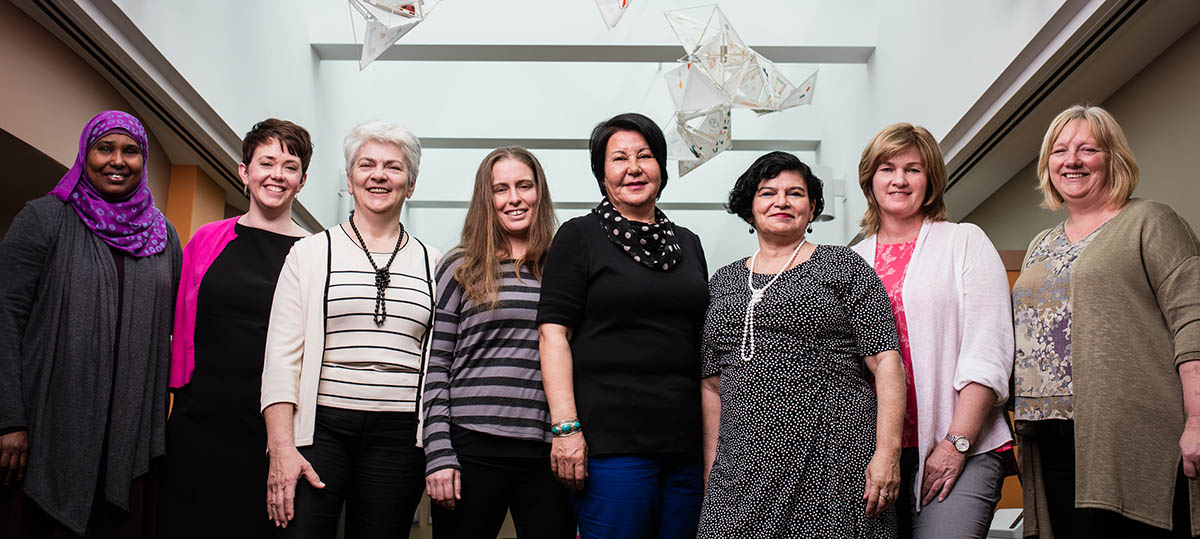When Wenche Gausdal, ISANS Manager of Settlement and Community, heard about Syrian refugees coming to Canada, she reflected on an earlier experience– the 1999 Operation Parasol that settled 5,000 Kosovars fleeing war in their homeland. “A few of us who were involved asked what we learned. What was that all about?”
Their answers proved invaluable for the hectic months to follow. From late December until mid-March, 694 Government-Assisted Refugees arrived in Nova Scotia – equal to numbers that would normally arrive over four years. They stayed temporarily at the Best Western Chocolate Lake Hotel in Halifax where at its peak there were 228 Syrians, 150 of whom were children.
Wenche recalls the week when 100 people arrived. “We were working with people who had just come, moving others out and having other staff support them. And, of course, there was a snowstorm, flights were rescheduled and furniture came late.” But ISANS staff met the huge challenge.
“Many people didn’t have Christmas or weekends off. It was always about how are we going to do it, not can we do it.” The initial phase of the Resettlement Assistance Program (RAP), which usually takes one month, was offered in 11 days. Team members acted as coordinators for health, volunteers, hotel accommodations, housing and settlement assistance. ISANS hired 25 new staff with about 15 at the hotel. Some worked overnight to handle health emergencies and early morning arrivals, allowing others to sleep worry free. Hotel staff efficiently and happily went far beyond basic service.
ISANS’ partnership with the Transitional Health Clinic for Refugees was vital. A clinic that sees 200 to 300 clients was now dealing with 1,100. “Someone arrived New Year’s Eve with serious medical issues and we had a system in place,” says a proud Wenche. They had no advance notice of health issues and disabilities, and flight notice was sometimes just 24 hours. Staff from the YMCA and ISANS – along with volunteers – provided activities for children, allowing parents to attend orientation.
Families moved from the hotel within two to three weeks. “We are one of very few places in Canada able to settle them this quickly,” says Wenche, adding that local landlords’ support was essential.
Wenche’s most profound memory is the appreciation shown by new arrivals. “People kept saying ‘thank you, thank you.’ They weren’t expecting to be respected. It made me think about how they were treated before they got here.” She believes the community now has a better understanding of the refugee experience. “Their resilience and skills and wish to start a new life, that positive energy, will be quickly noticed. That’s very rich for the community. We just need to give them the space to do it.”
